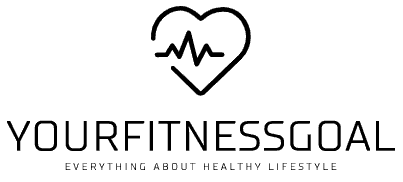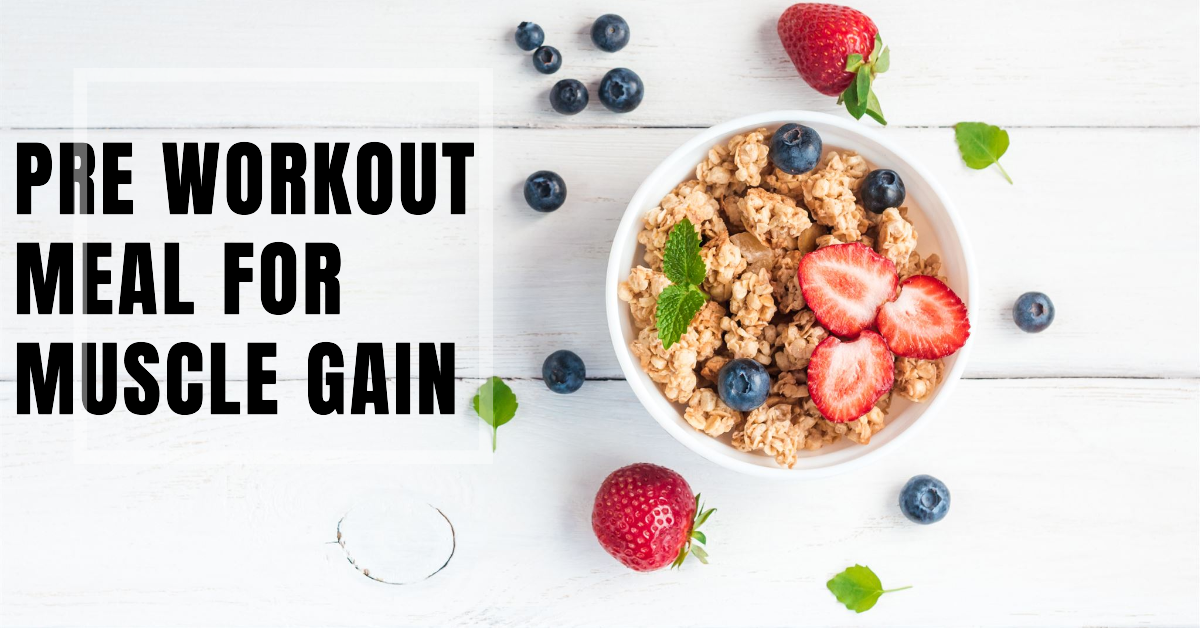Most people into fitness have this common goal of building muscle. The key component in the achievement of this goal lies in proper nutrition, particularly the meal that is taken before workouts. A well-chosen pre-workout meal will improve your performance, avoid muscle breakdown, and foster muscle growth. We give the essential components of a pre-workout meal, when it must be taken, and practical meal ideas to help you achieve optimal muscle gain in this detailed guide.
Importance of Pre-Workout Nutrition for Muscle Gain
Nutrition plays a pivotal role in muscle gain. According to science, a well-structured pre-workout meal can significantly impact your workout performance and subsequent muscle growth. Consuming the right nutrients before exercising ensures that your body has sufficient energy and prevents muscle catabolism, where the body breaks down muscle tissue for energy.
Timing of Pre-Workout Meals
Finally, your pre-exercise meal timing is extremely important. Sports dietitians advise eating a meal 3-4 hours before intense physical activity. This is enough to completely digest and absorb the food, so energy sources are easily available from that food during the workout. And if food is taken too close to exercise, it can cause stomach discomfort and lowered performance.
Key Timing Guidelines:
- 3-4 hours before workout: Ideal for a full meal
- 30 minutes to 2 hours before workout: Suitable for a smaller meal or larger snack
Eating too early or too late can hinder your performance. Proper timing helps maintain stable blood sugar levels, provides sustained energy, and prevents muscle breakdown.
Components of a Pre-Workout Meal
A well-balanced pre-workout meal should include carbohydrates, protein, and minimal fat. Each macronutrient plays a specific role in fueling your workout and promoting muscle gain.
- Carbohydrates: Carbohydrates are the primary source of energy for your body. They are broken down into glucose, which is used to fuel your muscles during exercise. For muscle gain, it is essential to consume adequate carbohydrates.
Recommendations:
- Daily intake: 1.8-3.6 grams of carbs per pound of body weight
- Pre-workout: 30-60 grams of carbs
Carbohydrates should make up the bulk of your pre-workout meal to ensure you have enough energy for your workout.
2. Protein: Protein is vital for muscle repair and growth. Including protein in your pre-workout meal helps prevent muscle breakdown and promotes muscle synthesis during and after your workout.
Recommendations:
- Pre-workout: 15-25 grams of protein
Aim for a moderate amount of protein to protect your muscles and improve satiety.
3. Fat: Fat slows down digestion and can cause discomfort during exercise. Therefore, it should be kept to a minimum in pre-workout meals.
Recommendations:
- Pre-workout: Low fat content
Minimize fat intake to avoid feeling sluggish and to ensure quick digestion of your meal.
Examples of Pre-Workout Meals for Muscle Gain
Here are some practical meal ideas that align with the guidelines discussed:
1.Greek Yogurt with Berries and Granola
- Greek yogurt provides protein
- Berries and granola supply carbohydrates
2. Overnight Oats with Low-Fat Milk and Fruit
- Oats and fruit are excellent sources of carbs
- Low-fat milk adds protein
3. Turkey Sandwich with Low-Fat Cheese on Whole Grain Bread
- Whole grain bread offers carbs
- Turkey and cheese provide protein
4. Breakfast Burrito with Potatoes, Eggs, and Beans
- Potatoes and beans are rich in carbs
- Eggs supply protein
5. Pasta with Meat Sauce and Veggies
- Pasta is a great carb source
- Meat sauce adds protein
These meals ensure a balanced intake of carbohydrates and protein, with minimal fat, making them ideal for pre-workout nutrition.
Benefits of Pre-Workout Meals
A well-compiled pre-workout meal provides several gains that add up towards muscle gain, including:
- Prevention of Catabolism Catabolism is the breakdown of muscle tissue for fuel. Pre-workout meals prevent this because there is enough energy from the carbohydrates and protein that is ingested, which saves your muscles from being used as fuel.
- Improved Performance Proper nutrition before exercise ensures that you have fuel for a strong performance. This might make for more effective workouts because you can lift heavier, do more reps, and elicit more muscle stimulation.
- Sustained Energy Levels When one consumes carbohydrates before a workout, the stable blood sugar levels ensure that a steady supply of energy comes at any one time in the workout. This prevents fatigue and helps to sustain high efforts in intensity.
- Better Synthesis of Muscles: A pre-workout protein intake readies your body for muscle repair and growth. It provides the necessary amino acids for muscle protein synthesis, increasing your muscle-building efforts.
FAQ’s
- When to Drink Protein Shakes for Weight Loss as a Female
Protein shakes can be consumed at various times to aid weight loss. For females, drinking a protein shake as a meal replacement or post-workout can help manage calorie intake while preserving muscle mass. The timing depends on individual preferences and goals. For more detailed information, refer to When to Drink Protein Shakes for Weight Loss as a Female. - Should I Lose Weight Before Building Muscle?
Whether to lose weight before building muscle depends on your current body composition and goals. If you have a significant amount of body fat, focusing on fat loss first can make muscle-building efforts more effective. However, some individuals may benefit from building muscle while losing fat simultaneously. For a comprehensive guide, visit Should I Lose Weight Before Building Muscle. - What to eat to gain muscle?
Eat a balanced diet rich in protein, carbohydrates, and healthy fats for the purpose of gaining muscle. Key foods include lean meats, eggs, dairy products, legumes, whole grains, and vegetables. Protein sources such as chicken, fish, and tofu, combined with complex carbohydrates like quinoa and sweet potatoes, provide the necessary nutrients for muscle repair and growth. - What are some easy recipes to help build muscle?
Here are some easy recipes to help build muscle:
Power Protein Smoothie: Blend together 1 scoop of protein powder, 1 banana, 1 cup of spinach, 1 tablespoon of peanut butter, and 1 cup of almond milk. Chicken and Quinoa Bowl: Cook quinoa and top with grilled chicken, steamed broccoli, cherry tomatoes, and a drizzle of olive oil. Greek Yogurt Parfait: Mix up Greek yogurt with fresh berries, granola, and a sprinkle of chia seeds. - What to eat before morning workout for muscle gain?
Before a morning workout, eat a lightweight, carbohydrate- and protein-packed meal that is easy to digest. Examples include:
Banana and Peanut Butter: A banana with a tablespoon of peanut butter. Oatmeal with Protein Powder: Cooked oats mixed with a scoop of protein powder and topped with berries. Greek Yogurt with Fruit: Greek yogurt with a handful of fresh fruit and a drizzle of honey. - Best pre workout meals for muscle gain
Some of the best pre workout meals for muscle gain include:
Turkey sandwich on whole grain bread: It provides a good amount of carbohydrate-protein balance in a single serving. Yogurt with Berries and Granola: Rich in proteins and complex carbohydrates. Overnight oats with low-fat milk and fruits: Convenient and packed with nutrients. - Healthy meals for muscle gain and fat loss
Healthy meals that support muscle gain and fat loss should be high in protein and include complex carbohydrates and healthy fats. Examples include: Grilled salmon with sweet potato and asparagus is a good source of protein and healthy fats. Chicken and Vegetable Stir-Fry: A mixture of chicken breast, mixed vegetables, and a side of brown rice. Low-fat egg white omelet with spinach and tomatoes: low in fat content but rich in proteins. - Do pre workouts make you gain weight?
Pre-workout supplements in themselves actually don’t cause an individual to gain weight. Some pre-workouts do contain ingredients like creatine, which tends to cause water retention and slight weight gain. Since the main purpose of pre-workout supplements is to improve performance, this has nothing to do with weight gain.
Additional Tips for Optimizing Pre-Workout Nutrition
- Stay Hydrated Proper hydration is crucial for optimal performance. Drink plenty of water throughout the day and consider consuming a glass of water with your pre-workout meal.
- Avoid High-Fiber Foods High-fiber foods can cause digestive discomfort during exercise. Choose low-fiber options to ensure quick digestion and absorption.
- Monitor Your Body’s Response Everyone’s body responds differently to food. Pay attention to how your body reacts to different pre-workout meals and adjust your choices accordingly.
- Consider Supplements In some cases, supplements like branched-chain amino acids (BCAAs) or creatine can enhance your workout performance and muscle gain. Consult with a healthcare professional before adding supplements to your routine.
Conclusion
A well-planned pre-workout meal is a vital tool for anyone looking to maximize muscle gain. By focusing on the right balance of carbohydrates, protein, and minimal fat, you can enhance your workout performance, prevent muscle breakdown, and support muscle growth. Remember to time your meal appropriately and choose foods that fuel your body effectively. With these strategies in place, you’ll be well on your way to achieving your muscle-building goals.
For more information on pre-workout meals and muscle gain, you can explore this article.
Implement these guidelines, and you’ll see a significant improvement in your muscle gain efforts. Happy training!

Hey, y’all! I’m Akshay!
I’m SO excited you’re here! I’m super passionate about nutrition and specialize in teaching others how to lose weight through healthy, low-carb eating along with Yoga and exercises. Here at Yourfitnessgoal, we believe in quality over quantity and that diet is EVERYTHING when it comes to your health and well-being. In short, we believe in a Fit and healthy lifestyle.

